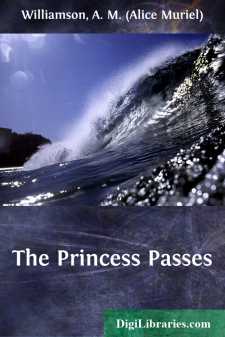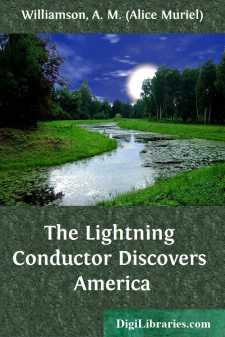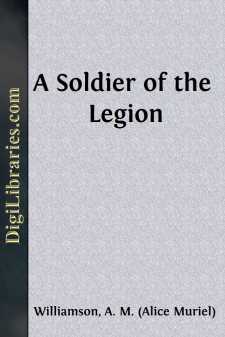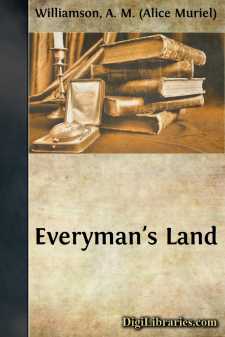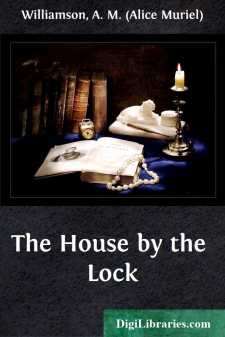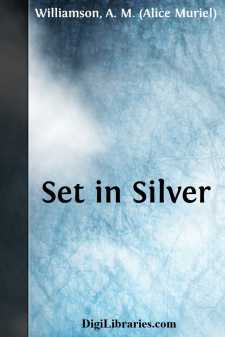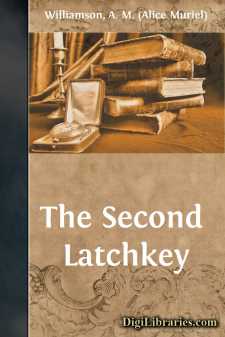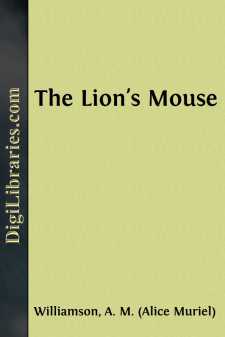Categories
- Antiques & Collectibles 13
- Architecture 36
- Art 48
- Bibles 22
- Biography & Autobiography 813
- Body, Mind & Spirit 142
- Business & Economics 28
- Children's Books 14
- Children's Fiction 11
- Computers 4
- Cooking 94
- Crafts & Hobbies 4
- Drama 346
- Education 46
- Family & Relationships 57
- Fiction 11829
- Games 19
- Gardening 17
- Health & Fitness 34
- History 1377
- House & Home 1
- Humor 147
- Juvenile Fiction 1873
- Juvenile Nonfiction 202
- Language Arts & Disciplines 88
- Law 16
- Literary Collections 686
- Literary Criticism 179
- Mathematics 13
- Medical 41
- Music 40
- Nature 179
- Non-Classifiable 1768
- Performing Arts 7
- Periodicals 1453
- Philosophy 64
- Photography 2
- Poetry 896
- Political Science 203
- Psychology 42
- Reference 154
- Religion 513
- Science 126
- Self-Help 84
- Social Science 81
- Sports & Recreation 34
- Study Aids 3
- Technology & Engineering 59
- Transportation 23
- Travel 463
- True Crime 29
The Princess Passes
Description:
Excerpt
Woman Disposes
"Away, away, from men and towns,To the wild wood and the downs,
To the silent wilderness."
—Percy Bysshe Shelley.
"To your happiness," I said, lifting my glass, and looking the girl in the eyes. She had the grace to blush, which was the least that she could do, for a moment ago she had jilted me.
The way of it was this.
I had met her and her mother the winter before at Davos, where I had been sent after South Africa, and a spell of playing fast and loose with my health—a possession usually treated as we treat the poor, whom we expect to have always with us. Helen Blantock had been the success of her season in London, had paid for her triumphs with a breakdown, and we had stopped at the same hotel.
The girl's reputation as a beauty had marched before her, blowing trumpets. She was the prettiest girl in Davos, as she had been the prettiest in London; and I shared with other normal, self-respecting men the amiable weakness of wishing to monopolise the woman most wanted by others. During the process I fell in love, and Helen was kind.
Lady Blantock, a matron of comfortable rotundity of figure and a placid way of folding plump, white hands, had, however, a contradictorily cold and watchful eye, which I had feared at first; but it had softened for me, and I accepted the omen. In the spring, when my London tyrant had pronounced me "sound as a bell," I had proposed to Helen. The girl said neither yes nor no, but she had eyes and a smile which needed no translation, so I kissed her (it was in a conservatory at a dance) and was happy—for a fortnight.
Then came this bidding to dinner. Lady Blantock wrote the invitation, of course, but it was natural to suppose that she did it to please her daughter. It happened to be my birthday, and I fancied that Helen had kept the date in mind. Besides, the selection of the guests had apparently been made with an eye to my pleasure.
There was Jack Winston, who had lately married an American heiress, not because she was an heiress, but because she was adorable; there was the heiress herself, née Molly Randolph, whom I had known through Winston's letters before I saw her lovely, laughing face; there was Sir Horace Jerveyson, the richest grocer in the world, whom I suspected Lady Blantock of actually regarding as a human being, and a suitable successor to the late Sir James. Besides these, there was only myself, Montagu Lane; and I believed that the dinner had been arranged with a view to my claims as leading man in the love drama of which Helen Blantock was leading lady, the other characters in the scene merely being "on" as our "support." If this idea argued conceit, I was punished.
It was with the entrée that the blow fell, and I had a curious, impersonal sort of feeling that on every night to come, should I live for a hundred years, each future entrée of each future dinner would recall the sensation of this moment. Something inside me, that was myself yet not myself, chuckled at the thought, and made a note to avoid entrées....


